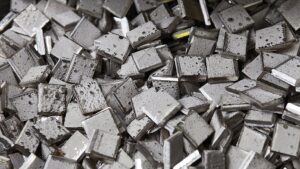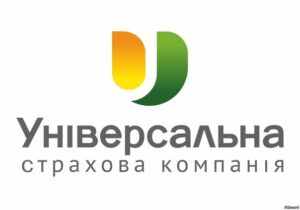
The State Service of Geology and Subsoil of Ukraine has announced auctions for the sale of eleven special permits for subsoil use. NADRA.INFO reports.
The auctions will be held on 08.10.2024. The period for submitting proposals: 20.09.2024 18:00 – 07.10.2024 20:00
We are publishing an overview of the lots with links to register for the auctions, as well as YouControl data on the owners of the companies that initiated the auctions.
As a reminder: the Antimonopoly Committee of Ukraine monitors the auctions held by the State Service of Geology and Subsoil of Ukraine. A special permit purchased in collusion between bidders may be invalidated.
The Maloskelivske quartzite deposit was explored in 1952-1956 by the Ukrainian Geological Exploration Trust of the Ministry of Ferrous Metallurgy of the Ukrainian SSR. The quartzites are suitable for use in a charge (75%:25%) with Ovruch quartzites for ferrosilicon production.
The eastern section of the Maloskelivske quartzite deposit has been developed by KGC since 2007 on the basis of a special subsoil use permit No. 4616 dated 18.12.2007. The permit was canceled by the order of the State Service of Geology and Mineral Resources No. 221 dated 07.07.2022.
The State Balance Sheet of Mineral Reserves of Ukraine “Quartzite and Quartz for Refractories” records the balance of quartzite reserves of the Eastern area of Maloskelivske deposit in the amount of 1426.59 thousand tons in category C1 (class code 121) and with uncertain commercial value in category B+C1 – 2345 thousand tons (class code 332).
Given the annual dense-body capacity of the quarry of 121.2 thousand tons, the company’s quartzite reserves are expected to last for 11.9 years (source).
As of 01.01.2024, the State Balance Sheet of Mineral Reserves of Ukraine “Carbonate raw materials for feed additives” recorded chalk reserves of Trostyanetsky deposit in the amount of 2215.41 thousand tons in categoryC1 (class code 122) (source ).
The reserves of loams of the North-Western and South-Eastern sections of Moskalivske deposit, recorded as of 01.01.2024 in the State Balance of Mineral Reserves of Ukraine “Raw materials for brick and tile”, correspond to the approved ones and amount to the following (thousandm3): North-Western section: C2 – 971.5 (class code 122); South-Eastern area: C2 – 235.6 (class code 122). Total for the field: C2 – 1207.1 (source ).
The chalk meets the requirements of the cement industry as a carbonate component of cement charge for the production of Portland cement grades 400 and 500. In addition to cement production, the deposit’s chalk is suitable for the production of construction lime, as well as for the production of fine ground chalk of MMS-1 and MMS-2 grades (GOST 12085-88) for liming acidic soils (source).
The Mamrynske-2 deposit of brick raw materials was developed in 1997-2010 by the collective enterprise Korostyshivskyi Rayiagrobud. The State Balance of Mineral Reserves of Ukraine “Brick and Tile Raw Materials” as of January 01, 2024, recorded the balance reserves of loams and clays of Mamrynske-2 deposit in the amount of 165.7 thousandm3 under category A (source ).
According to all indicators, fresh and weathered granodiorites meet the requirements of the relevant State Standards for raw materials for the production of crushed stone grade 1200 and rubble stone grade 800.
As of 01.01.2024, the remaining reserves of the Yarivske deposit (1971 site), accounted for by the State Balance of Mineral Reserves of Ukraine “Building Stone”, are as follows (thousandm3) by category A – 1965.5, B – 7064.2,C1 – 4407.8;A+B+C1 – 13437.5;C2 – 2850.6 (source ).
Volovyn field (south-eastern and north-western parts), GW + DPR + PR (Lviv region, Chervonohrad district). The starting price is UAH 2,445,760. The initiator is Darvar LLC (Ivan Vartovnyk).
Zarichna technogenic area (dump of Zarichna mine), GW + DPR + PR (Lviv region, Chervonohrad district). The starting price is UAH 1,948,160. The initiator is NPO Zakhid Invest LLC (Vladyslav Liubovskyi).
As a reminder, the State Service of Geology and Subsoil has scheduled 11 auctions for the sale of special permits for the use of subsoil areas with hydrocarbon deposits for 24.09.2024.

In January-August this year, Ukrainian companies increased imports of nickel and products by 68.5% compared to the same period in 2023 to $18.6 million (in August – $1.620 million).
At the same time, exports of nickel and products amounted to $508 thousand (in August – $85 thousand), while in January-August 2023 it was $201 thousand.
In 2023, Ukraine decreased imports of nickel and products by 74.2% compared to 2022, to $15.391 million.

Ukrainian enterprises in January-August this year increased imports of aluminum and aluminum products – by 20%, up to $292.701 million (in August – $42.649 million).
Exports of aluminum and aluminum products for the first eight months of 2024 increased by 31.1% compared to the comparable period a year earlier – to $82.966 million (in August – $11.901 million).
Ukraine’s imports of aluminum and aluminum products in 2023 increased by 7.7% to $366.463 million, while exports of aluminum and aluminum products in 2023 increased by 0.7% compared to 2022 to $97.616 million.

There will be more warm days than cold ones in the fall, said Natalia Ptukha, a spokeswoman for the Ukrainian Hydrometeorological Center.
“For September and October, the average monthly temperature is expected to be two to three degrees higher than the climatic norm. In November, we will be closer to the climatic norm. In September, we have a precipitation deficit. In October, we are closer to the norm and, in principle, we also expect that in November we should be leveling off,” she said at a briefing on Wednesday.
Ptukha noted that for the meteorological autumn to begin, the average daily temperature in a particular region should not rise above 15° for several days. Currently, higher temperatures and a lack of precipitation are recorded in almost all regions of the country, indicating that the meteorological summer is continuing in Ukraine.
The spokesperson for the Ukrainian Hydrometeorological Center emphasized that in recent years, it has become particularly noticeable that there are more “periods of heat” than “periods of cold”.
“From year to year, any season in our country becomes quite warm. There are fewer and fewer periods with cold days, and they are becoming shorter, not as long and not as intense,” she said.
According to her, it is too early to talk about the upcoming winter. Although it is already clear that there will be fewer “cold periods” and they will not be as severe, Ukrainians should still be prepared for any weather manifestations.
“Of course, we cannot say that we will no longer have cold periods and frosts in winter. No, we don’t say that, because our country is located in such a way that we have seasonality. Of course, there will be winter in some of its manifestations, but still, based on the trends that are now in place, it will be milder more often,” Ptukha said.

In January-June 2024, Universalna Insurance Company (Kyiv) collected a little more than UAH 1 billion in net insurance premiums, which is 20.6% more than in the same period in 2023, gross premiums showed an increase of 22.2% to UAH 1.2 billion, according to the website of the Standard Rating agency.
The agency has updated the credit rating/financial strength (reliability) rating of Universalna Insurance Company at uaAAA on the national scale based on the analysis of its performance for the specified period.
According to the published data, revenues from individuals increased by 23.69% to UAH 533.021 million, and from reinsurers – by 8.91 times (by UAH 6.627 million) to UAH 7.465 million.
Despite a significant increase in premiums from individuals, legal entities prevailed in the company’s client portfolio in the first half of 2024.
Insurance payments sent to reinsurers in the first half of 2024 increased by 67.43% compared to the same period in 2023 to UAH 55.1 million, the reinsurer participation ratio in insurance premiums increased by 1.24 percentage points to 4.59%.
The volume of insurance claims paid by the company increased by 46.36% to UAH 422.204 million, while the claims ratio increased by 5.82 percentage points to 35.18%.
In the first six months of 2024, compared to the same period in 2023, the insurer’s operating profit increased by 3.16 times to UAH 120.391 million, and net profit by 2.06 times to UAH 126.707 million.
As of July 1, 2024, the company’s assets increased by 14.16% to UAH 1.680 billion, equity increased by 17.11% to UAH 867.087 million, liabilities increased by 11.17% to UAH 812.56 million, cash and cash equivalents increased by 54.41% to UAH 266.432 million.
As of the said date, the insurer’s equity exceeded its liabilities by 6.71%. The current financial investment portfolio of UAH 1.121 billion consisted of bank deposits (UAH 748.698 million) and domestic government bonds (UAH 373.213 million), which covered 32.79% of the company’s liabilities.
Universalna has an international shareholder base, with the European Bank for Reconstruction and Development holding 30% of the shares and Fairfax Financial Holdings Limited 70%.
Fairfax Financial Holdings Limited (Canada) is a holding company that, through its subsidiaries, is primarily engaged in accident insurance, property insurance and investment management.

As of September 18, farmers in all regions of Ukraine planted 1.0487 million hectares of winter crops, up from 639.9 thousand hectares last week, the press service of the Ministry of Agrarian Policy and Food reports.
According to the report, winter wheat was sown on 340.3 thousand hectares (101.1 thousand hectares a week earlier), barley – on 16.5 thousand hectares (3.7 thousand hectares), rye – on 3.4 thousand hectares (0.4 thousand hectares), and rapeseed – on 688.4 thousand hectares (534.7 thousand hectares).
According to the Ministry, winter wheat is being sown in 18 regions, barley in 12, and rye in six. Winter rape is being sown in 18 regions of Ukraine. Farmers in Volyn, Rivne, Ternopil, and Lviv regions have finished sowing it.
As of the same date a year earlier, Ukraine sowed 1.584 mln ha of winter crops, including 1 mln ha of rapeseed, 514 thou ha of wheat, 47 thou ha of barley, and 24 thou ha of rye.